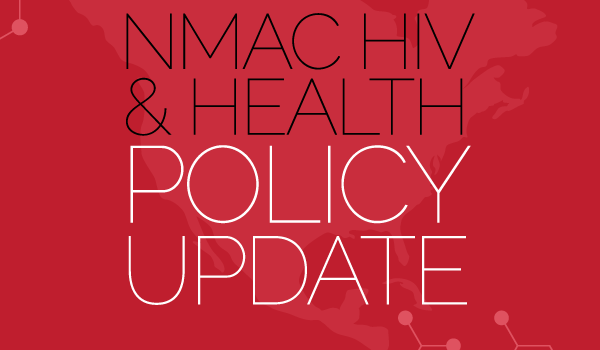Week ending: May 17, 2019
By: Sable K. Nelson
SUMMARY: House Oversight Committee Hearing on Gilead’s HIV Prevention Drug
On Thursday, May 16, 2019, at 10:00 a.m., the Committee on Oversight and Reform held a hearing on “HIV Prevention Drug: Billions in Corporate Profits after Millions in Taxpayer Investments.”
You can watch a recording of the hearing here.
PURPOSE AND BACKGROUND
The hearing examined Gilead’s pricing for Truvada for pre-exposure prophylaxis (PrEP) as well as taxpayer funding that led to approval by the Food and Drug Administration (FDA) and whether the public is receiving an appropriate return on its investment.
WITNESSES
The following individuals provided testimony:
Daniel O’Day
Chairman and Chief Executive Officer
Gilead Sciences, Inc.
Dr. Robert Grant
Professor of Medicine
University of California, San Francisco
Dr. Rochelle Walensky, MD, MPJ
Chief, Division of Infectious Diseases, Massachusetts General Hospital
Professor of Medicine, Harvard Medical School
Tim Horn
Director, Medication Access and Pricing
National Alliance of State and Territorial AIDS Directors
Dr. Aaron Lord
PrEP Patient and Advocate
For more information, READ.
KEY TAKEAWAYS
- The Hearing was attended by 18 Democrats and 13 Republicans.
- The tone and tenor was hyper partisan. Democrats generally asserted that Gilead puts profits ahead of people and has manipulated the American tax and the patent systems to maximize Truvada profits. Alternatively, Republicans asserted that pharmaceutical companies should be praised for developing lifesaving prescription drugs for Americans and not punished for profiting from innovation.
- Gilead’s announcement of its donation to the Centers for Disease Control and Prevention (CDC) of enough Truvada to cover 200,000 uninsured people for 10 years will be in addition to the drug Gilead already provides to uninsured people through the company’s existing payment assistance program.
- The figure for the number of PrEP prescriptions was determined based on a CDC estimate that of the 1.1 million people in the US who are at risk of HIV, 200,000 are uninsured. Gilead repeatedly asserted that it is committed to facilitating PrEP access to uninsured individuals.
- If Descovy is approved for PrEP, which is likely to occur soon, the donation to the CDC will be of free Descovy rather than Truvada (since it has been alleged that Descovy is associated with improved biomarkers of kidney and bone health compared with Truvada when these drugs are used as PrEP).
- Generic versions of Truvada are imminent in the next two years:
- The first generic version of Truvada, manufactured by Teva Pharmaceuticals, will hit the market on September 30, 2020. This is expected to lower the cost of the drug by about 10 percent to 15 percent.
- Six months later, on March 30, 2021, multiple generic versions of Truvada will enter the market, which should reduce the cost of the drug dramatically. Prices could drop down to about $30 per month.
- Even though the rate of new HIV infections is much higher among black and Latino MSM, PrEP is predominantly used by white gay and bisexual men who have sex with men (MSM).
For more information, READ.
NEXT STEPS
The same day as the hearing, the U.S. House of Representatives passed on the Strengthening Health Care and Lowering Prescription Drug Costs Act (H.R. 987). This week, the House Energy and Commerce Subcommittee on Health will convene a hearing on Improving Drug Price Transparency and Lowering Prices for American Consumers (examining a series of drug price transparency bills, including the Prescription Drug STAR Act (H.R. 2113) and the FAIR Drug Pricing Act (H.R. 2296)).
Podcast: KHN’s ‘What The Health?’ States Race To Reverse ‘Roe’
Margot Sanger-Katz of The New York Times, Anna Edney of Bloomberg News and Alice Miranda Ollstein of Politico join KHN’s Julie Rovner to discuss the new abortion bans passed in Alabama and Georgia; bipartisan congressional efforts to end “surprise” out-of-network medical bills; and a new public option health insurance plan soon to be available in Washington state. For more information, LISTEN.
Submit Comments to Inform the Development of a STD Federal Action Plan (DEADLINE–June 3, 2019)
To help inform the development of the Sexually Transmitted Diseases (STD) Federal Action Plan, HHS seeks input from stakeholders on what strategies can be implemented by federal agencies to improve the efficiency, effectiveness, coordination, accountability, and impact of our national response to increasing rates of STDs. Rates of STDs in 2017 reached an all-time high among males and females and all racial and ethnic groups. To be assured consideration, comments must be received at the address provided below, no later than 5:00 p.m. ET on June 3, 2019. Electronic responses are strongly preferred and may be addressed to STDPlan@hhs.gov. Written responses should be addressed to: U.S. Department of Health and Human Services, 330 C Street SW, Room L001, Washington, DC 20024; Attention STD RFI. For more information, READ.
What You Can Do
TAKE ACTION: It is very important that our elected officials hear from us to protect federal funding for HIV prevention and care. Speak truth to power by sharing your personal stories with your elected officials. It is vitally important to meet with your federal elected officials when they are at home. If we don’t support and advocate for HIV funding and programs, who will? Our movement cannot afford to stand on the sidelines. Your U.S. Senators and U.S. Representatives need to hear from you.
- Find your U.S. Senators: https://www.senate.gov/general/contact_information/senators_cfm.cfm
- Find your U.S. Representative: https://www.house.gov/representatives/find-your-representative
What NMAC is Doing About It
- NMAC remains vigilant in its advocacy to protect FY20 government funding and the existence of the social safety net.
- NMAC is working in coalition to defend the right of people living with HIV to serve in the US military.
